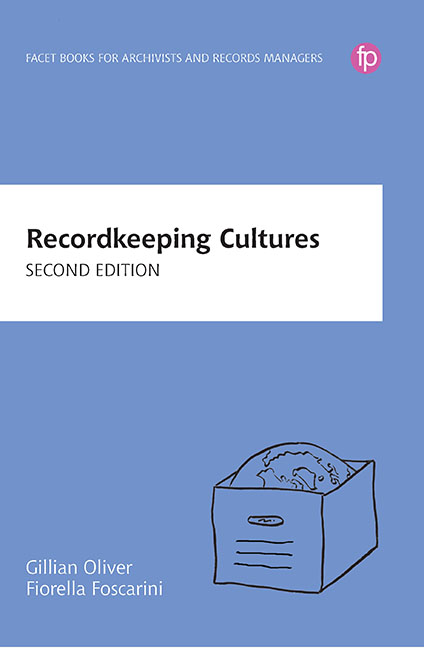3 - Information Preferences
Published online by Cambridge University Press: 28 October 2020
Summary
This chapter discusses two fundamental information preferences which are key characteristics to assess at ICF level one (see Figure 1.2). The first preference is a complex cluster of factors which are often overlooked entirely. It encompasses differences in terms of need for explicit versus implicit information in order to communicate successfully, as well as variation in tendencies to prefer (or trust) written rather than informal sources of information communicated by individuals in one's own social group, and vice versa.
The second preference is a phenomenon which has been much more widely studied, namely, willingness to share information and the level of granularity to which it is felt to be appropriate to share (e.g. with colleagues in the same workgroup). Just as with the value accorded to records, discussed in the preceding chapter, these preferences lead to information behaviours that are essential to identify but difficult if not impossible to change. Underlying these behaviours may be issues of trust, which are discussed further in Chapter 8.
While influencing these subjective choices is usually quite difficult, as the reasons for preferring one course of action over another may reside very deep in one's subconscious, what records managers and other information experts can change are the conditions within which carrying out certain choices may become possible. These kinds of interventions relate to information governance, which is the subject of Chapter 7.
This chapter begins by attempting to disentangle the cluster of preferences relating to different sources and formats of information, and suggests reasons for preferences for textual (in all its many variants) or oral communication channels, linking these to different cultural traditions. The next section considers preferences relating to sharing information, and discusses the association of these with different national cultures, as well as with occupational and corporate cultural features.
Assessment methods that are appropriate for identifying these information preferences centre mostly on identification of the dimensions of national culture that are likely to be influential. In contrast to the interviews and surveys discussed in the previous chapter, this approach will be relatively straightforward and much less time intensive. In order to identify local drivers that will impact on information sharing, it will also be necessary to undertake some analysis of organisational documents.
- Type
- Chapter
- Information
- Recordkeeping Cultures , pp. 53 - 70Publisher: FacetPrint publication year: 2019



